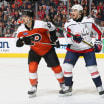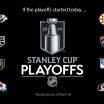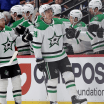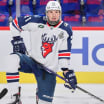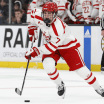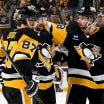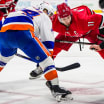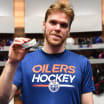SAN JOSE --Ideas and potential solutions to the Pittsburgh Penguins' issues were discussed when Jim Rutherford met with co-owners Mario Lemieux and Ron Burkle days before he was hired to be the team's general manager two years ago.
"We had a meeting and they kind of gave me an overview of what they thought of the team," Rutherford said. "I told them how I would fix it. I did."
Yes he did. Quickly.
Rutherford's solutions led Penguins to Cup
Roster overhaul, Sullivan hiring sparked Pittsburgh to championship
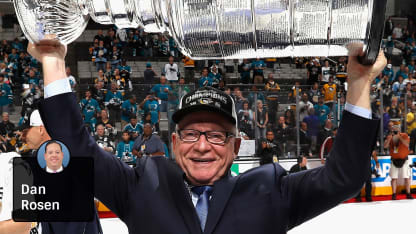
© Gregory Shamus/NHLI
The Penguins capped Rutherford's second season as their GM with a Stanley Cup championship. They clinched it with a 3-1 win against the San Jose Sharks in Game 6 of the Stanley Cup Final at SAP Center on Sunday.
In doing so, Rutherford became the third general manager and first since 1946 to win the Stanley Cup with two different teams. He also won the Cup with the Carolina Hurricanes in 2006.
"It's special every time," Rutherford said. "It was special in Carolina. We had a special group there, special fans in Carolina. Same thing in Pittsburgh. But to win a Stanley Cup with two different teams, two different coaches, two different types of coaches, that feels good."
Make no mistake, this was Rutherford's team.
Rutherford knew how he wanted the Penguins to play (fast) and after watching how last season ended for them, with a five-game Eastern Conference First Round series loss to the faster New York Rangers, he went about building his roster his way last summer.
"I think the biggest thing I can say is he had an idea of what he wanted us to play like, what he saw our team as, our identity, if we wanted to win," said Penguins captain Sidney Crosby, who won the Conn Smythe Trophy. "He kind of had, I guess, the vision to be able to see what we looked like at our best. He put us together."
Rutherford acquired seven of the 20 players who dressed for Pittsburgh in the Cup Final, including every member of the Penguins' most productive line, the "HBK Line," featuring Carl Hagelin, Nick Bonino and Phil Kessel.
That line combined for 56 points, including 20 goals, in the Stanley Cup Playoffs.
Kessel, the most controversial and costly of Rutherford's acquisitions, led the Penguins with 10 goals and 22 points.
"I'm so happy for him because his years in this league haven't been easy," Rutherford said, "now he's got his name on the Cup."
Rutherford showed faith in the Penguins' development system. The Penguins wouldn't have won the Cup without goalie Matt Murray, and forwards Conor Sheary, Bryan Rust and Tom Kuhnhackl.
Murray tied a record for most wins by a rookie goalie in the Stanley Cup Playoffs with 15.
Sheary had 10 points playing on the first line with Crosby. Rust had six goals and nine points playing primarily on the second line with Evgeni Malkin. Kuhnhackl played an effective role on the fourth line with Matt Cullen and Eric Fehr, two more of Rutherford's offseason investments.
"The young guys came in and gave us energy," Rutherford said. "Murray was great in goal. These guys just like playing for each other."
It didn't look like that early in the season, when Crosby was struggling and the Penguins were slumping.
Rutherford noticed that too, so on Dec. 12 he fired Mike Johnston, the coach he hired after he became the GM. He replaced Johnston with Mike Sullivan, who he brought in to coach Wilkes-Barre/Scranton of the American Hockey League last summer.
The Penguins were 15-10-3. Crosby had 19 points in 28 games.
They finished 48-26-8. Crosby had 66 points in his last 52 games, giving him 85 points in 80 games. He's a Hart Trophy finalist.
"I had a feeling where [the team] was, I didn't need to see the slow start," Rutherford said. "I knew there were some areas that needed to be fixed. It just got to the point where we needed to do it."
Sullivan had an immediate connection with the players.
"He just has a special way about him, about the way he communicates," Rutherford said. "The players bought into it. They liked the style he played and it just gained momentum from there."
Sullivan immediately bought into what Rutherford was trying to do.
"Jim's no-nonsense and so he has great intuition for the game and I think he has a great feel for what he has and what he wants," Sullivan said. "What I love about Jim is he empowers people to do their job. He allowed me to be the coach, to make important decisions for this team that we felt were the types of decisions in order to help this team win."
Rutherford gave Sullivan more tools for success, acquiring defenseman Trevor Daley on Dec. 14 and Hagelin on Jan. 16.
"We added Daley and Hagelin to add more speed," Rutherford said.
Sheary, Rust and Kuhnhackl came up and made the Penguins even faster and much deeper. They went 6-2-3 in January and then 8-4-1 in February.
Defenseman Justin Schultz was brought in for depth on Feb. 27.
The Penguins really clicked in mid-March and went 14-2-0 in their final 16 games, playing the last 15 without Malkin because of an injury.
Malkin came back in Game 2 of the first round and had four points in Game 4. The Penguins never slowed down.
They defeated the Rangers in five games, knocked off the Presidents' Trophy-winning Washington Capitals in six, and staved off elimination in the Eastern Conference Final by winning Games 6 and 7 against the Tampa Bay Lightning to advance to the Cup Final, where they defeated the Sharks in six.
"[Winning the Cup] was always in the plans and in my thoughts since I got here because our core guys were special players and if you get to the point where you can add the right group around them than you have a chance to win," Rutherford said. "That's what happened this year."
Rutherford thought his time in the League might have been done once he was done in Carolina after the 2013-14 season, a sixth consecutive season without a playoff berth for the Hurricanes. He was content to play golf and live an easy life until Burkle and Lemieux called.
They talked. He got hired. Two years later, the Penguins won the Stanley Cup.
"I wouldn't have gone many places," Rutherford said. "I just felt with the core players in Pittsburgh this was a chance to win another Cup. As it turned out, I was right."





